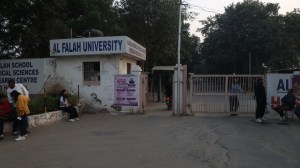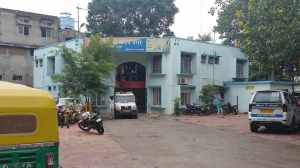Desert blooms
Last year when the flash floods came they took away a lot from this small desert village. But villagers learnt to use water for agriculture and today mustard and wheat stand where once there was just sand.

The small desert village of Kawas, which was badly affected by the flash floods in August last year, wears a completely new look today. Several areas of this dry arid land have turned green, thanks to the fields of mustard, wheat, isabgol and vegetables around the newly formed water body in the village.
Earlier agriculture was hardly practiced here. Now farms of mustard, green peas and isabgol stand ready to be harvested. And Kawas8217;s people are smiling. Even as the affected continue to live in temporary shelters, waiting for the water-logged areas to dry, they have found how to use water for irrigation.
These fields have changed the colour of this desert village from brown to green and from green to golden yellow. What started as a small experiment has come as a huge surprise not just to the locals but to the authorities as well.
According to the authorities, the market cost of the cultivated crops must be over a few million, a figure that they had never thought of in this dry and arid desert area.
8220;Except for a little seasonal farming, nobody in Kawas had thought of farming at such a large scale,8221; says Manoj Sharma, Director, Agriculture.
On ground, the residents of Kawas most of whom took to farming after the floods are the happiest lot. 8220;I never thought that my fields would turn this green and that day and that I would harvest mustard worth thousands of rupees. I just took this as an activity to keep me busy which might help me earn some money but the same water which had arrived as a curse, turned into a boon,8221; says Ratnaram Bhil, who had sown mustard on a two-acre plot.
After waiting for months for the water level to recede in their village, the survivors got in touch with the authorities to allow them to use the flood water for irrigation. 8220;Who ever had though that crops can be cultivated near the sand dunes of the desert,8221; says Anil Kadwasra. He had grown isabgol over 15 acres, giving employment to several tribals, also badly affected in the floods.
But the unexpected rains and hailstorms have brought fresh worries to the village. 8220;We had done fine till now but if it rains more, all our mustard will be spoilt and also our wheat. We have our fingers crossed and are praying it does not rain now,8221; says Isaram, a resident of Kawas.
- 01
- 02
- 03
- 04
- 05































